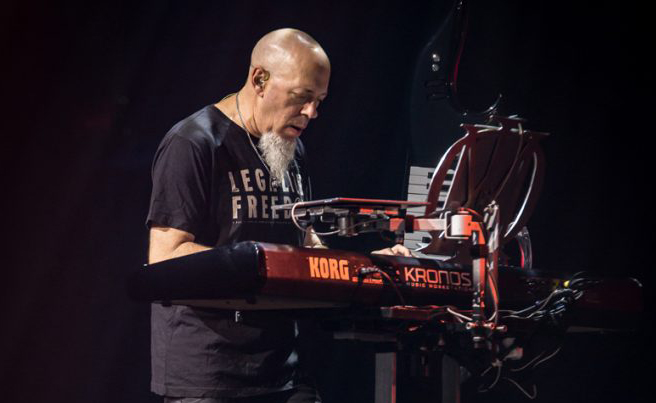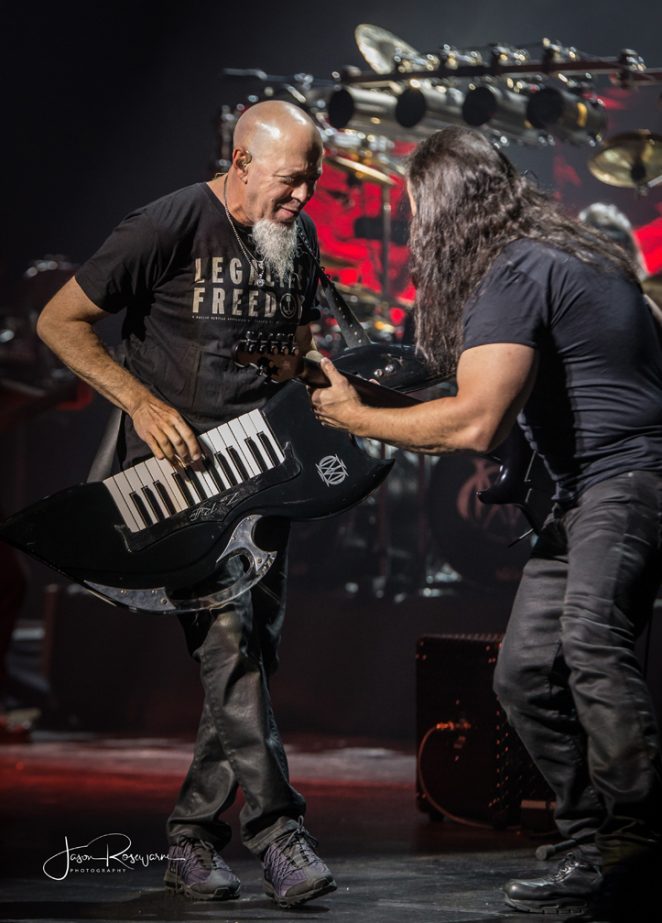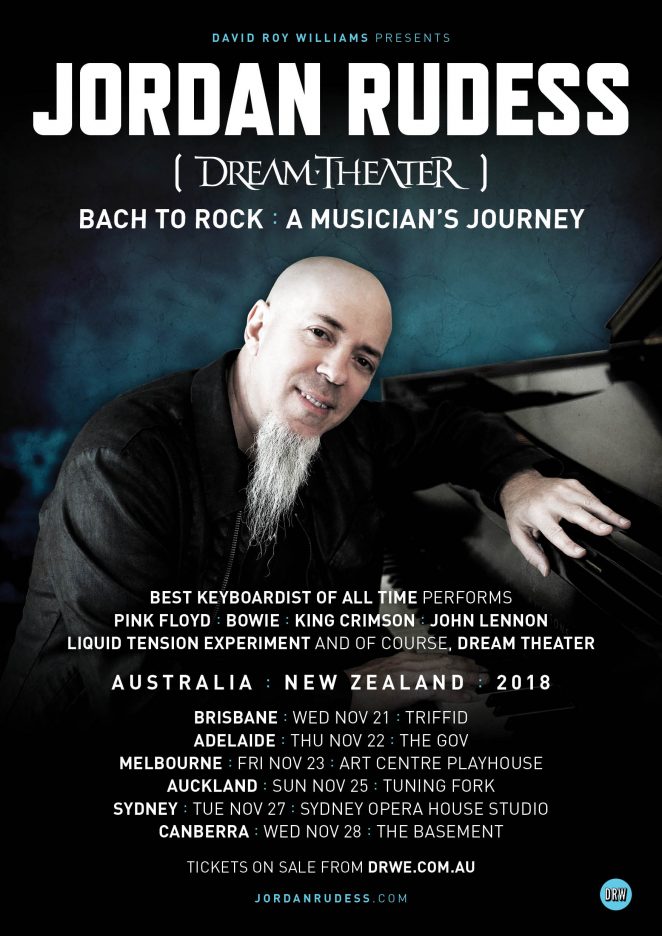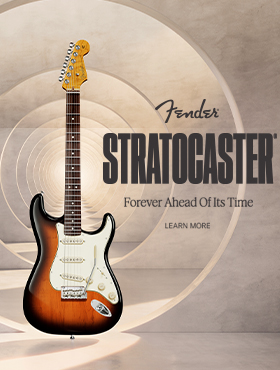
Jordan Rudess is best known as the keyboardist/multi-instrumentalist extraordinaire for platinum-selling Grammy- nominated prog rock band, Dream Theater and he’s on his way to Australia to perform his acclaimed solo show Bach to Rock: A Musician’s Journey. Fans can expect dazzling performances of material ranging from George Gershwin, David Bowie and John Lennon, through to Pink Floyd, Liquid Tension Experiment and King Crimson. And of course, fans will relish an abundance of magnificent Dream Theater material.
Jordan spoke to Australian Musician’s Greg Phillips last week while in between packing his bags for Australia, he was mixing his soon to be released solo album at studio near his home in New York.
Hi Jordan, tell me about this solo album you’re working on.
In April I have a rock, progressive album that’s coming out on Mascot Records. I’m finishing mixing it now. It was supposed to come out before the Dream Theater record but then we decided it made more sense to let the Dream Theater record come first.
Before we chat about your solo Australian tour, I wanted to go back a bit. What was the first non-classical piano piece that really struck a chord with you?
The one that really had the biggest influence in my life was Emerson, Lake and Palmer’s Tarkus. That’s the one that I had on repeat and really changed my way of thinking and gave me a view or an opening to all of these other possibilities to play keyboards that were so powerful.
What was you first electronic keyboard?
The first one was a Panther organ. I was about 14 I think. It was a red double manual organ but I was mostly into my classical music world. Playing around with it was kinda fun though.
You are bringing your Back to Rock solo tour to Australia next week. Where did the concept of these shows originate?
I knew that I wanted to get out and do a bunch of solo shows and I really wanted to do them on piano. My wife Danielle, who is a theatre producer, when I was talking to her about it she said, you know you just have to go out there and play your music but she was thinking maybe that there should be something more that people could engage with from a theatrical point of view. We discussed it and came up with this idea that we both really like, which was to bring people on what we’re calling a musician’s journey. I can take them pretty much from my roots, through the Julliard childhood obviously all the way up to Dream Theater and all of the solo stuff. So it became this show that is a combination of playing music, starting with Bach, ending with Dream Theater and also storytelling.
Of all of the great classical composers, do you think that one was more of a genius than the others?
I mean there have been so many different kinds of classical composers through the periods but the ones that have had the most effect on me are Bach and then Chopin, because he writes for piano so beautifully. I’m also a big fan of Debussy because he has some beautiful chords and I love the impressionistic style. Then getting a little more modern, people like Prokofiev, Rachmaninoff… those are some big influences.
You worked with David Bowie and his producer Tony Visconti on the Heathen album. What kind of things do you learn from working with a such a successful recording team like that?
The first thing that I learned, especially in those days is that your role when you walk into a session is to give the artist or producer you are working for, what they want! You have to really understand what they want and then be capable to make that happen. One of the things David told me when I walked in, which was kind of a surprise to me was and not what I expected … and a very quick lesson … he was like OK, nice to meet you, I have these songs and I have basically put down scratch keyboard parts on them. What I want you to do is have it very user-friendly but make it kinda like I did but a little smoother. I thought wow, maybe you called the wrong guy! Not that I couldn’t do that but I had these fantasies of going in there and maybe, you know … changing the future of David Bowie’s music, being the next influence of David Bowie’s style. Of course that was not the reality because this guy’s coming in, a friend of the producer and David didn’t know me really and just needed me to function in a particular kind of way. It was a positive experience all round but that’s the kind of thing you really learn, that’s what a studio musician does. Sometimes a studio musician gets called in for a particular specialty that they have, which is cool. But of course in my life, I have been more focussed on the concert stage and recording my own albums and Dream Theater, which is different.

What do you enjoy most about the format of your solo show? It’s really the polar opposite of a Dream Theater show isn’t it?
Yeah, what I enjoy most is … you know … I started on the piano and everything else came out of that. For me to be in front of a piano and express myself musically, is probably the most natural thing I can do in my life, even beyond verbal communication. Piano is where I feel like I am really settled and communicative, where I can express my musicality. I love the fact that I am able to go out and do these shows and it’s really rewarding to see the reaction of people in the crowd. It’s definitely something where I think I can engage the audience in a musical way that is not possible in a rock or progressive rock format.
What gear are you using in these shows, is it just a piano?
It is mostly piano but I will take a brief bit of time to play something on my iPad instrument. I’m not sure if you are aware but I have a company called Wizdom Music and I make cutting edge musical products, so I’ll do something on that … change it up a bit and do some shredding.
What was the catalyst for starting your company?
It started about ten or so years ago. I’ve been into synthesisers for so many years and when the multi-touch iPhones came out, I really felt that there were a lot of interesting possibilities for using the multi-touch for musical expression. Although they made horrible sounds and had horrible graphics in those days, I had a vision and I connected with a particular programmer, whose name was Kevin Chartier. He and I partnered to create an app called MorphWiz that introduced some very powerful concepts to the music space. First of all, being able to have something that was on your iPhone but you could do all these cool things with. Specifically what it introduced was the ability to have every finger that you put down on a playing surface to have independence, so you can slide with one finger and not with the other or move in a vertical direction on a note and change the timbre and not do that on the other notes. So it was way ahead of its time and it won the Billboard award for best app that year. It got me started with creating instruments with coding partners for mostly IOS but also we have Windows and Android on various products through the years.
What do you think a rock concert might be like in 20 or 30 years? How do you see things changing?
It is wonderful to see people live of course in a room but I wonder if it will get to a point where everybody has go some glasses on or headset and they’re getting an even better sound and a better view. I wonder about that, I don’t know for sure but I think while we are finding out what’s going to happen in the distant future, I think it will get to a point where more people are engaging with entertainment in the privacy of their own home.
Although you are predominantly known as a keyboard player, you have a signature guitar. Could you tell me about that?
I do, I have an amazing guitar. I arrived at the last NAMM show and my Wizdom Music booth was set up around the corner from this guy, whose name is Przemek Drużkowski. He’s a Polish guy who lives in the UK and he’s a luthier who makes amazing instruments. He called me over to his booth as he’s a Dream Theater fan and he wanted to chat and he showed me his instruments and I loved what he was making. We discussed a little plan and he ended up building me a really beautiful 8 string custom instrument that we called the Wizard’s guitar. So the Wizard model is something that people could actually order if they were inspired by it. It’s pretty slick, it’s designed for speed and power. Now we are working together on figuring out the next model.
What did you think of Petrucci’s Music Man NOMAC guitar when you saw it and has he let you play it?
I have never asked to play it but I’m sure he would have but it’s pretty cool… expensive .. beautiful. I should also say that John’s line of Music Man guitars, they build incredible and such beautiful refined instruments, I love them.
The new Dream Theater album Distance Over Time is out in February. What can you tell me about the album?
Honestly I can’t really get into much of it beyond what you already know because we’re not quite there yet.
Yeah sure. Let’s talk about some of the other material you are playing on this solo tour… a bit of King Crimson I believe?. When did you first get into them?
When I was about 17 years old and still immersed in my classical world, some friends of mine at high school started to turn me onto things like Genesis, Emerson, Lake and Palmer, King Crimson, Yes and Jethro Tull, all of these groups and it was a big musical awakening. Those are things that had such a strong influence on my life and on my music. It’s a big part of the story that I tell and play in my solo concerts and those openings led me to Dream Theater.
One of the great things about many of the old prog bands was that some of the keyboard players were actually great concert pianists, like Rick Wakeman for example.
I loved Yes. Close To The Edge is one of m y favourite albums.
Music Radar named you the best keyboard player of all time but who do you place in that category?
I would say that my biggest influence in the rock realm is Keith Emerson. He was a huge influence on my playing
Did you ever get to play with him?
I knew him through friends but we never got to jam together. I played with Rick Wakeman once
You have the app company, online conservatory, Dream Theater, sessions for others, your solo work. Do you ever get to relax?
I’m relaxing while I am chatting with you! A little bit but I like what I do. I wouldn’t have it any other way. I’ve got a family and I am very interested in them. I love technology and art and I play with my various devices, you can create videos and pictures.
Does your solo show differ from night to night?
It definitely can. One of the things I really enjoy doing is that I come out and instead of breaking straight into a programmed tune, I’ll start improvising. I love that because first of all, I am a big improvisor. I am very comfortable with improvising. Improvising with an audience is always interesting because I kind of feel like I can use the audience’s energy and I never know what I am going to play, depending on the mood and feeling of the audience to do different things. So from that point of view the night can be very different. Depending on my feelings I can always veer away from playing something scheduled and play whatever comes into my head and often I will do that. Having said that, there’s a story to tell and I am going through the story. One night maybe I’ll throw in a Yes song and the next a Pink Floyd, so it doesn’t have to be the same.
What piano do you have at home?
A beautiful Steinway grand
How do you tell the difference between a great Steinway or Yamaha for example? What are the characteristics of pianos that make them different?
I grew up playing Steinway pianos. I went to Julliard School of Music and every practice room or teacher’s room had Steinway pianos in them. There’s a particular sound which comes from the kind of strings they use, the kind of hammers they use and the action of the keys. A Steinway is known for a beautiful bell-like quality although every piano is different. Yamaha is probably the most consistent of the pianos out there that I have found. If you’re getting for instance a Yamaha C7, you kind of know what to expect whereas if you are getting Steinway B or whatever, it could be a wider range. But a great piano … my favourite is a great Steinway but if somebody said here’s a beautiful Yamaha or whatever, I wouldn’t turn it down.
Jordan Rudess November 2018 Tour Dates:
Wednesday Nov 21 Brisbane – Triffid
Thursday Nov 22 Adelaide – The Gov
Friday Nov 23 Melbourne – Art Centre Playhouse
Sunday Nov 25 Auckland – Tuning Fork
Tuesday Nov 27 Sydney Opera House Studio
Wednesday Nov 28 Canberra – the Basement
Ticket information http://davidroywilliams.com/tours/jordanrudess/
For more: https://www.jordanrudess.com and http://wizdommusic.com./



